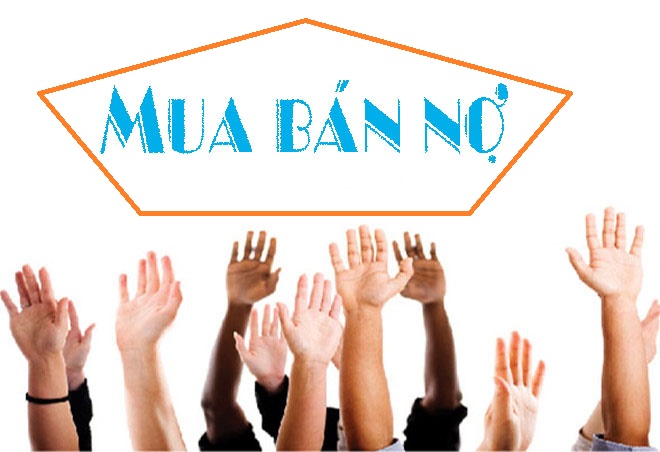When entering into a contract to purchase and sell goods, the parties have goodwill in cooperating and doing business with each other. However, the occurrence of disputes and conflicts during the implementation process is inevitable. So, what is a dispute on goods purchase and sale contracts and which form of resolution shall apply, arbitration or court?

1. What is a dispute on goods purchase and sale contracts?
Disputes in goods purchase and sale contracts refer to conflicts in the rights and obligations of the seller and the buyer during the contract implementation process. More specifically, this is the fact that one of the parties has performed or failed to perform or incompletely performed an act specified in the contract, affecting the other party, causing material or reputational damage. Disputes may also arise from other terms in the contract such as: contract interpretation, liability for damages, penalties for violations, etc.
The basis for a dispute is a contractual breach. According to Clause 12 Article 3 of the Law on Commercial 2005 of Vietnam:
“Contractual breach means the failure of a party to perform, to fully or properly perform its obligations according to the agreement between the involved parties or the provisions of this Law.”
During the performance of the contract, if one party has grounds to believe that the other party has violated the contract, a dispute will arise and the parties must work together to resolve them to avoid affecting the original purpose of the agreement, which is for both parties to achieve the desired benefits.
2. Should the Court or the Arbitration be chosen to settle contract disputes?
When a dispute arises, it must be settled to avoid hindering the business process and incurring additional unnecessary risks. Dispute settlement is understood as handling conflicts and disagreements about the rights and obligations of the parties in the contract in accordance with the provisions of law. The law predicts that disputes will arise during the process of entering into contracts between the parties, thus, it has stipulated that the forms of settling commercial disputes in general and goods purchase and sale contracts in particular include the following four (04) forms:
- Negotiation: is a form of economic dispute settlement in which the parties discuss among themselves to agree on a way to eliminate the dispute without the influence or help of a third person. The settlement plan that the parties reach through negotiation is implemented by the parties on a voluntary basis. Negotiation is a simple, compact, quick and effective form of dispute settlement. However, negotiation is only suitable for settling small value disputes where the disputing parties are well-intentioned, knowledgeable about the law and have extensive litigation experience in negotiation.
- Mediation: is convincing the disputing parties to resolve their dispute amicably. Mediation was conducted after negotiations between the parties failed to achieve results. Mediation is usually through a third party (called the mediator).
- Arbitration: this is a method of resolution through an arbitration organization, resulting in the arbitrator's decision after considering the parties' disputes being valid and forcing the parties to implement. Regulations on dispute resolution by arbitration are prescribed by the Law on Commercial Arbitration 2010 of Vietnam.
- Court: is a method of resolving disputes with the participation of state agencies. The adjudication agency will act on behalf of state power to handle disputes that arise according to strict order and procedures. Decisions and judgments to resolve disputes are highly enforceable. Resolution by the Court must comply with the Civil Procedure Code 2015 of Vietnam. Procedures for resolving contract disputes by Court include:
+ Procedures for resolving a case at the first instance court include initiating a lawsuit, accepting the case, conciliation and trial preparation, and opening a trial;
+ Appellate trial procedures if there is an appeal;
+ Procedures for re-trial of legally effective judgments and decisions: including cassation and retrial procedures.
In fact, in Vietnam, due to habits, traditions and legal system of proceedings, disputes over non-negotiable sales contracts are often resolved in court. Resolution in Court has the following advantages and disadvantages:
+ Advantages:
-
The Court is the State's judicial agency, so its rulings are highly coercive. In case the parties do not comply with the court's decision, they will be forced. Therefore, the interests of the winning party will be guaranteed, if the losing party has assets to enforce the judgment.
-
Conciliation at Court is also emphasized by the parties. The Court will organize conciliation if the two parties cannot reach a mutual agreement, then trial procedures will be conducted at Court.
+ Disadvantages:
-
The settlement at Court must follow relatively long procedural regulations that can affect the parties involved in business activities because the time factor is very important in business.
-
Besides, the element of keeping business secrets is not guaranteed, so the parties need to consider when resolving disputes in commercial business cases in court.
Due to the disadvantages of resolving disputes in court, the choice of arbitration is being noticed by businesses, leading to an increasing number of disputes being resolved by arbitration agencies. Arbitration has the following advantages and disadvantages:
+ Advantages:
-
Procedures are flexible and simple, parties can be proactive in the time and place of dispute resolution depending on each arbitration center.
-
Guaranteed more confidentiality than the Court.
-
The parties can choose an arbitrator to resolve the matter, so they can choose experts with expertise and practical experience in the ongoing dispute.
-
The arbitrator's decision is final and cannot be appealed. Therefore, the relatively quick settlement time helps the business operations of the subjects to be uninterrupted and minimize losses as much as possible.
+ Disadvantages:
-
Arbitration costs are often higher than court costs.
-
Both parties must have a valid and enforceable arbitration agreement.
-
The enforceability of arbitration is often not as high as that of a court.
-
In some cases, the Arbitrator's award may be canceled by a Court decision according to Article 68 of the Law on Commercial Arbitration 2010 of Vietnam.
Because the law allows choices, when resolving disputes, parties should consider the actual situation and their needs to choose the most appropriate form of resolution. Always consider prioritizing a form of resolution that maintains your reputation, partners and saves costs so you can continue to cooperate with each other as the original purpose of entering into the contract. If a mutual agreement cannot be reached, consider resolving it at a judicial agency. In addition to businesses learning for themselves, to ensure efficiency and safety, businesses should consult with lawyers, legal consultants or, preferably, arbitrators of an arbitration center in Vietnam, so there will be more accurate decisions about whether to choose Commercial Arbitration or follow the traditional method of resolving by Court.
Legal basis:
- Law on Commercial Arbitration 2010
Long Binh
 Article table of contents
Article table of contents







.png)


.Medium.png)
.Medium.png)
.Medium.png)
.Medium.png)
